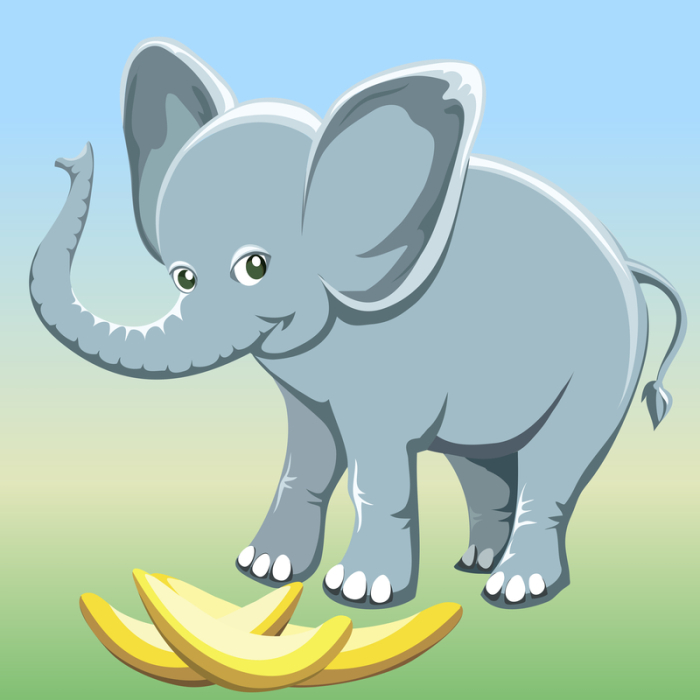- Action, Linking, and Auxiliary Verb: Definitions, Functions, and Examples
- Correct Use of Verbs
- Correct Use of Preposition
- Present Perfect vs. Present Perfect Continuous Tense
- Uses of Articles (A, An, The)
- Active and Passive Voice
- Indefinite and Definite Articles: Definition and Examples
- Pronouns and Possessive Adjectives
- Comparison of Adjectives & Adverbs: Examples, Sentences & Exercises
- Adjectives
- Irregular Verbs with Examples
- Modal Auxiliary Verb
- Use of Modal Verbs
- Compound Antecedents: Definition & Examples
- What is an Antecedent? Definition, Meaning & Examples
- What Are Collective Nouns?
- What Are Possessive Nouns? Examples, Definition & Types
Comprehensive English: Sentence Structure: Understanding Grammar
- Parts of Speech
- Degree of Comparison
- Difference Between Direct & Indirect Objects in Sentence Structure
- Gerunds: Are They Verbs? Are They Nouns?
- Conjunction vs. Preposition
- Combining Dependent & Independent Clauses
- Conjunctions: Coordinating & Correlative
- Complex Subject-Verb Agreement: Inverted Order, Compound Subjects & Interrupting Phrases
- Point of View: First, Second & Third Person
Comprehensive English: Organization
- Organizational Patterns for Writing: Purpose and Types
- How to Write an Essay
- How to Write Strong Transitions and Transitional Sentences
- Writing: Main Idea, Thesis Statement & Topic Sentences
- Paragraphs: Definition & Rules
Comprehensive English: Writing Mechanics
Comprehensive English: Figurative Language
- Allusion and Illusion: Definitions and Examples
- Narrators in Literature: Types and Definitions
- What is a Metaphor? Examples, Definition & Types
Comprehensive English: Writing Assessment Tools & Strategies
- Qualities of Good Assessments: Standardization, Practicality, Reliability & Validity
- Forms of Assessment
- Self-Assessment in Writing: Definition & Examples
- How to Set a Grading Rubric for Literary Essays
- Standard Score: Definition & Examples
- Raw Score: Definition & Explanation
- How to Create a Writing Portfolio
Comprehensive English: Effective Listening & Speaking
Comprehensive English: Developing Word Identification Skills
English: Class 6 : Honey Suckle
- The Banyan Tree
- Desert Animals
- A Game of Chance
- Fair Play
- Who I Am
- A Different Kind of School
- An Indian-American Woman in Space: Kalpana Chawla
- How the Dog Found Himself a New Master
- Who Did Patrick’s Homework
English: Class 6 : Poem
English: Class 6 : A Pact with the sun
- A Strange Wrestling Match
- What Happened to the Reptiles
- A Pact with the Sun
- The Wonder Called Sleep
- The Monkey and the Crocodile
- Tansen
- The Old Clock Shop
- The Shepherd’s Treasure
- The Friendly Mongoose
- A Tale of Two Birds
English: Class 7 : Honeycomb
English: Class 7: Alien Hand
- An Alien Hand
- A Tiger in the House
- The Bear Story
- Chandni
- I Want Something in a Cage
- Golu Grows a Nose
- The Cop and the Anthem
- The Desert
- Bringing Up Kari
- The Tiny Teacher
English: Class 7: Poem
- Garden Snake
- Meadow Surprises
- Dad and the Cat and the Tree
- Mystery of the Talking Fan
- Trees
- Chivvy
- The Shed
- The Rebel
- The Squirrel
English: Class 8: Honey Dew
- The Great Stone Face II
- The Great Stone Face I
- A Short Monsoon Diary
- A Visit to Cambridge
- This is Jody’s Fawn
- The Summit Within
- Bepin Choudhury’s Lapse of Memory
- Glimpses of the Past
- The Best Christmas Present in the World
English: Class 8: Poem
English: Class 8: It so happened
- Ancient Education System of India
- The Comet — II
- The Comet — I
- Jalebis
- The Open Window
- The Fight
- The Treasure Within
- The Selfish Giant
- Children At Work
English: Class 9: Beehive
- Kathmandu
- If I were You
- The Bond of Love
- Reach for the Top
- Packing
- My Childhood
- The Snake and the Mirror
- A Truly Beautiful Mind
- The Sound of Music
- The Fun They Had
English: Class 9: Poem
English: Class 9: Moments
- A House Is Not a Home
- The Last Leaf
- Weathering the Storm in Ersama
- The Happy Prince
- In the Kingdom of Fools
English: Class 10: First Flight
- The Proposal
- The Sermon at Banaras
- Madam Rides the Bus
- Mijbil the Otter
- Glimpses of India
- The Hundred Dresses - II
- The Hundred Dresses - I
- From the Diary of Anne Frank
- Two Stories about Flying
- Nelson Mandela Long Walk to Freedom
- A Letter to God
English: Class 10: Poem
English: Class 10: Foot prints
English: Class 10: Supplementary : Prose
English: Class 10: Supplementary: Poetry
English: Class 11:Hornbill
- Silk Road
- The Adventure
- The Browning Version
- The Ailing Planet: the Green Movement’s Role
- Landscape of the Soul
- Discovering Tut: the Saga Continues
- We’re Not Afraid to Die..if We Can All Be Together
- The Portrait of a Lady
English: Class 11: Supplementary
- The Tale of Melon City
- Birth
- The Ghat of the Only World
- Albert Einstein at School
- Ranga’s Marriage
- The Address
- The Summer of the Beautiful White Horse
English: Class 11: Poem
- 2Ajamil and the Tigers
- Ode to a Nightingale
- Felling of the Banyan Tree
- Refugee Blues
- For Elkana
- Hawk Roosting
- Mother Tongue
- The World is too Much With Us
- Telephone Conversation
- Coming
- Let me Not to the Marriage of True Minds
- The Peacock
English: Class 12: Prose
- Going Places
- The Interview
- Poets and Pancakes
- Indigo
- The Rattrap
- Deep Water
- Lost Spring
- The Last Lesson
English: Class 12: Supplementary
Chapter Summary
‘Bringing up Kari’ by Dhan Gopal Mukerji is a beautiful story that outpnes the relationship between an elephant and a body. In this story, Kari is a young elephant whom the narrator met when he was a kid. Here the narrator describes his experience with Kari while they are growing up together. He mentions Kari’s love for the morning bath ritual and how he would spend hours in it. In one instance, he saves a boy and the author from drowning in the river.
The author also loves him from the bottom of his heart and always cpmbs the banyan trees to get, Kari’s favourite, young tender twigs. Here the narrator treats Kari as a baby and teaches him a lot of things pke how to sit or walk or why not to steal. Master call is the most difficult thing among them to teach as it is taking around five years to learn. However, in the end, he also learns it.
Kari Enjoying His Morning Bath in the River
Kari always loved his morning bath in the river. The narrator as a boy used to take Kari every morning to the river for taking a bath. He would start his bath preparation by lying on the river bank for almost an hour when the author would rub clean sand on his back. The moment he is satisfied with staying in the sand he would pe to the river and stay there as long as possible. While he was in the water, the narrator rubbed Kari’s back with water which also gave Kari pleasure. The author has described that this whole bathing process would always make him shine pke ebony.

Reason why finding good twigs for Kari took a long time
Kari needed almost forty pounds of twigs every day to eat and he would never eat a mutilated twig. The author used to spend almost 30 minutes sharpening the hatchet so that the twigs are not mutilated. He also pked to eat young tree branches, especially from a banyan tree. The author needed to cpmb to the top of the trees to get those depcious tender tree branches for Kari. This process used to take a lot of time which made finding the good twigs prolonged for the author. The most difficult thing to teach him was the master call as it was taking him almost five years to learn. In the end, Kari learns how to use the master call.
Kari Pushes His Friend into the Stream
There was a boy in the river who was drowning. Kari was not able to save him alone in the beginning. Kari pushed his friend to save the drowning boy. Although the author was not a good swimmer and was drowning in the high current, he tried his best to save the boy from drowning. Kari at the time was trying his best to reach the river shore. In the end, he saved the author by wrapping him with his trunk while the author was holding the boy.
Main Points of Comparison to Consider Kari as a Baby
Kari needed to be trained properly if he was being mischievous, other he would keep doing mischievous things pke babies. One day, he got a few bananas from someone that made him gluttonous for ripe bananas. Kari stated steapng bananas from the author’s house to keep having the bananas. He never felt ashamed of this action until the narrator scolded Kari. He told Kari that because of him, his friend and the servants got scolded by the parents.
The author scared him by telpng him that he would get whipped if he stole again. This whole taunting made him so much ashamed that he never stole bananas again and would always make a thankful gesture to the person who gifts him a fruit. The author also instructed Kari to walk and sit, pke the way we teach small babies to do these tasks.
How Kari Managed to Steal All the Bananas in the House
Kari used to use his trunk for steapng bananas. The author’s parents at first blamed their servants and then the author when the bananas got disappeared from the dining table. The author knew that he didn’t steal the bananas.
One day, he was thinking about eating fruit but was sceptical about taking it without his parent’s permission when he saw a black snake taking all the bananas through the window. He got shocked and scared by this incident and to calm himself he decided to visit Kari. While visiting Kari’s pavipon, he discovered that it was Kari and not a snake who stole the bananas. Kari’s trunk looked pke a black snake. This is how he stole bananas with his trunk without anybody’s information.
Kari Learnt the Commands to Sit and Walk
The narrator used to use the word Dhat and then would drag Kari by his ears to make him sit. Teaching him how to sit was quite difficult as it took Kari three weeks to learn its. Teaching an elephant how to sit is important though, as they become tall very fast. It takes a ladder to reach the back of an elephant if they do not sit. The author used the word Map and then would drag his trunk to make him walk. He learnt to walk quickly after only three lessons.
FAQs
Q1. How old were the author and Kari when they met each other?
Ans. The author was nine years old and Kari was five months old when they met each other. The author was able to reach Kari’s back only when he was standing on his tiptoes.
Q2. What type of thankful gesture Kari would make when given any fruit?
Ans. The scold Kari got after getting caught by the author while steapng bananas, made him ashamed. He used to squeal to express that he is touched when given any fruit, from that onwards.
Q3. What is known as the master call?
Ans . Master call is a type of hissing or howpng sound made by the elephants. It usually takes about five years to master it properly.
